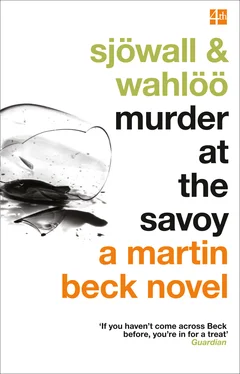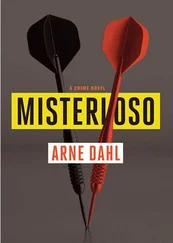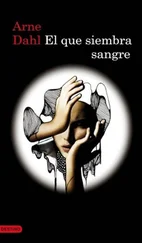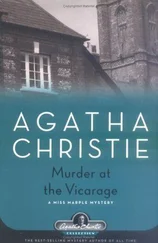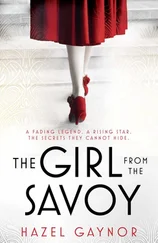The bullet struck the speaker just behind the left ear, and he fell forward on to the table, his left cheek in the crenellated mashed potatoes around an exquisite fish casserole à la Frans Suell.
Sticking the weapon into his pocket, the gunman turned sharply to the right, walked the few steps to the nearest open window, placed his left foot on the sill, swung himself over the low window, stepped into the window box outside, hopped down on to the pavement and disappeared.
At the table three windows away a diner in his fifties grew rigid and stared with amazement, a glass of whisky halfway to his mouth. In front of him was a book that he had been pretending to read.
The man with the suntan and the dark-blue shantung suit was not dead.
Stirring, he said, ‘Ow! It hurts.’
Dead people don't usually complain. Besides, it didn't even look as if he were bleeding.
Per Månsson was sitting in his bachelor den on Regementsgatan, talking to his wife on the telephone. He was a Detective Inspector with the Malmö police force, and although he was married, he lived as a bachelor five days of the week. For more than ten years he'd spent every free weekend with his wife – an arrangement which had so far satisfied them both.
He cradled the receiver with his left shoulder while he mixed a Gripenberger with his right hand. It was his favourite drink, consisting simply of a jigger of gin, crushed ice and grape juice in a big tumbler.
His wife, who'd been to the movies, was telling him the plot of Gone With the Wind.
It took some time, but Månsson listened patiently, because as soon as she had finished the story he planned to ward off their usual weekend get-together with the excuse that he had to work. Which was a lie.
It was twenty minutes after nine in the evening.
Månsson was sweating in spite of his light clothing – a string vest and chequered shorts. He had closed the balcony door at the beginning of the conversation so that he wouldn't be disturbed by the rumble of traffic from the street. Although the sun had long ago sunk behind the roofs of the buildings across the street, it was very warm in the room.
He stirred his drink with a fork, which he was embarrassed to admit had been either stolen or taken by accident from a restaurant called Översten. Månsson wondered if a person could take a fork by accident and said, ‘Yes, I see. It was Leslie Howard then who … No, huh? Clark Gable? Uh-hmm …’
Five minutes later she'd got to the end. He delivered his white lie and hung up.
The telephone rang. Månsson didn't answer immediately. He was off work and wanted to keep it that way. He slowly drained his Gripenberger. Watching the evening sky darken, he lifted the receiver and answered, ‘Månsson.’
‘This is Nilsson. That was one hell of a long conversation. I've been trying to get you for half an hour.’
Nilsson was an assistant detective, on duty that night at the central police station on Davidshall Square. Månsson sighed.
‘Well?’ he said. ‘What's up?’
‘A man has been shot in the dining room at the Savoy. I'm afraid I'm going to have to ask you to get over there.’
The glass was empty but still cold. Månsson picked it up and rolled it against his forehead with the palm of his hand.
‘Is he dead?’ he asked.
‘Don't know,’ said Nilsson.
‘Can't you send Skacke?’
‘He's off. Impossible to get hold of. I'll keep looking for him. Backlund is there now, but you probably ought to …’
Månsson gave a start and put down the glass.
‘Backlund? Okay, I'll leave right away,’ he said.
He promptly called a taxi, then put the receiver on the table. While dressing, he listened to the rasping voice from the receiver mechanically repeating the words ‘Taxi Central, one moment please’ until his call was finally put through to the operator.
Outside the Savoy Hotel several police cars were carefully parked, and two constables were blocking the entrance from a growing crowd of curious evening strollers jammed together at the bottom of the stairs.
Månsson took in the scene as he paid for the cab, put the receipt in his pocket, observed that one of the constables was being rather brusque and reflected that it wouldn't be long before Malmö's police force had as bad a reputation as their colleagues in Stockholm.
He said nothing, however, only nodded as he walked past the uniformed policemen into the lobby. It was noisy there now. The hotel's entire staff had gathered and were chatting with each other and with some customers streaming out of the grill. Several policemen completed the picture . They seemed at a loss, unfamiliar with the surroundings. Evidently no one had told them how to act or what to expect.
Månsson was a big man in his fifties. He was dressed casually in polyester trousers and sandals, with his shirt out. He took a toothpick from his breast pocket, pulled off the paper wrapper and stuck it in his mouth. As he chewed, he methodically took stock of the situation. The toothpick was American, menthol-flavoured; he'd picked it up on the train ferry Malmöhus , which provides such things for its passengers.
Standing by the door leading to the large dining room was a patrolman named Elofsson, whom Månsson thought was a little more intelligent than the rest.
He walked over to him and said, ‘What's the story?’
‘Looks like someone's been shot.’
‘Have you had any instructions?’
‘Not a word.’
‘What's Backlund doing?’
‘Questioning witnesses.’
‘Where's the man who was shot?’
‘At the hospital, I suppose.’
Elofsson turned slightly red. Then he said, ‘The ambulance got here before the police, obviously.’
Månsson sighed and went into the dining room.
Backlund was standing by the table with the gleaming silver tureens questioning a waiter. He was an elderly man with glasses and ordinary features. Somehow he'd managed to become a first assistant detective. He was holding his notebook open in his hand, busily taking notes. Månsson stopped within hearing distance, but said nothing.
‘And at what time did this happen?’
‘Uh, about eight-thirty.’
‘About?’
‘Well, I don't know for sure.’
‘In other words, you don't know what time it was.’
‘No, I don't. ’
‘Rather odd,’ said Backlund.
‘What?’
‘I said, it seems rather odd. You have a wrist watch, don't you?’
‘Of course.’
‘And there is a clock on the wall over there, if I'm not mistaken.’
‘Yes, but …’
‘But what?’
‘Both of them are wrong. Anyway, I didn't think of looking at the clock.’
Backlund appeared overwhelmed by the response. He put down the pad and pencil and began to clean his glasses. He took a deep breath, grabbed the notebook and started writing again.
‘Even though you had two clocks at your disposal, you didn't know what time it was.’
‘Well, sort of.’
‘We've got no use for “sort of” answers.’
‘But the clocks aren't synchronized. Mine's fast, and the clock over there's slow.’
Backlund consulted his Ultratron. ‘Odd,’ he said, writing something down.
Månsson wondered what.
‘So you were standing here when the criminal walked by?’
‘Yes.’
‘Can you give me as full a description as possible?’
‘I didn't really get a good look at him.’
‘You didn't see the gunman?’ said Backlund, startled.
‘Well, yes, when he climbed out of the window.’
‘What did he look like?’
‘I don't know. It was pretty far away, and that table was hidden by the pillar.’
‘You mean you don't know what he looked like?’
Читать дальше
